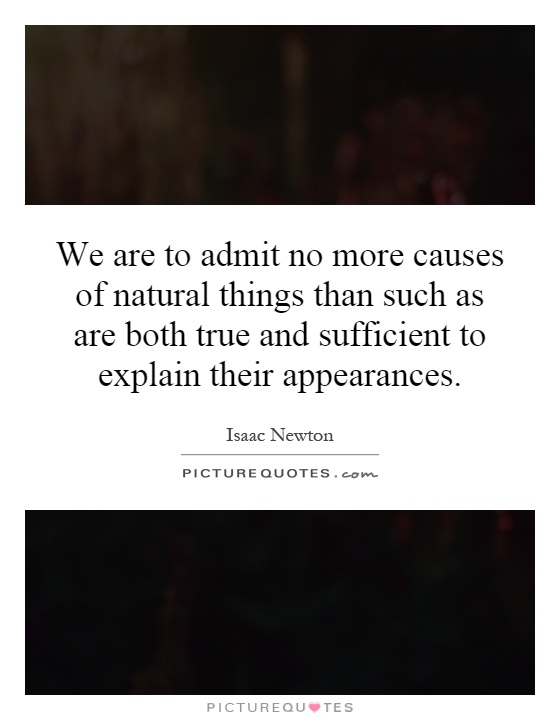We are to admit no more causes of natural things than such as are both true and sufficient to explain their appearances

We are to admit no more causes of natural things than such as are both true and sufficient to explain their appearances
Isaac Newton, one of the most influential scientists in history, is often credited with revolutionizing our understanding of the natural world. His famous quote, “We are to admit no more causes of natural things than such as are both true and sufficient to explain their appearances,” reflects his commitment to seeking simple and elegant explanations for complex phenomena.Newton’s groundbreaking work in physics, particularly his laws of motion and universal gravitation, laid the foundation for modern science. By proposing that the same laws govern the motion of objects on Earth and in the heavens, Newton unified the study of terrestrial and celestial phenomena. This idea of a universal set of laws governing the natural world was a radical departure from the prevailing belief in supernatural explanations for natural events.
Newton’s insistence on only accepting causes that are both true and sufficient to explain observations was a rejection of the prevailing reliance on metaphysical explanations in science. Instead of invoking divine intervention or mystical forces to explain natural phenomena, Newton sought to uncover the underlying principles that govern the behavior of the physical world. This commitment to empirical evidence and logical reasoning laid the groundwork for the scientific method as we know it today.
Newton’s emphasis on simplicity and parsimony in scientific explanations has had a lasting impact on the way we approach the study of nature. By seeking the simplest possible explanation that is consistent with the available evidence, scientists can avoid unnecessary complexity and speculation. This principle, known as Occam’s razor, is a cornerstone of scientific reasoning and has guided generations of researchers in their quest to understand the natural world.












 Friendship Quotes
Friendship Quotes Love Quotes
Love Quotes Life Quotes
Life Quotes Funny Quotes
Funny Quotes Motivational Quotes
Motivational Quotes Inspirational Quotes
Inspirational Quotes